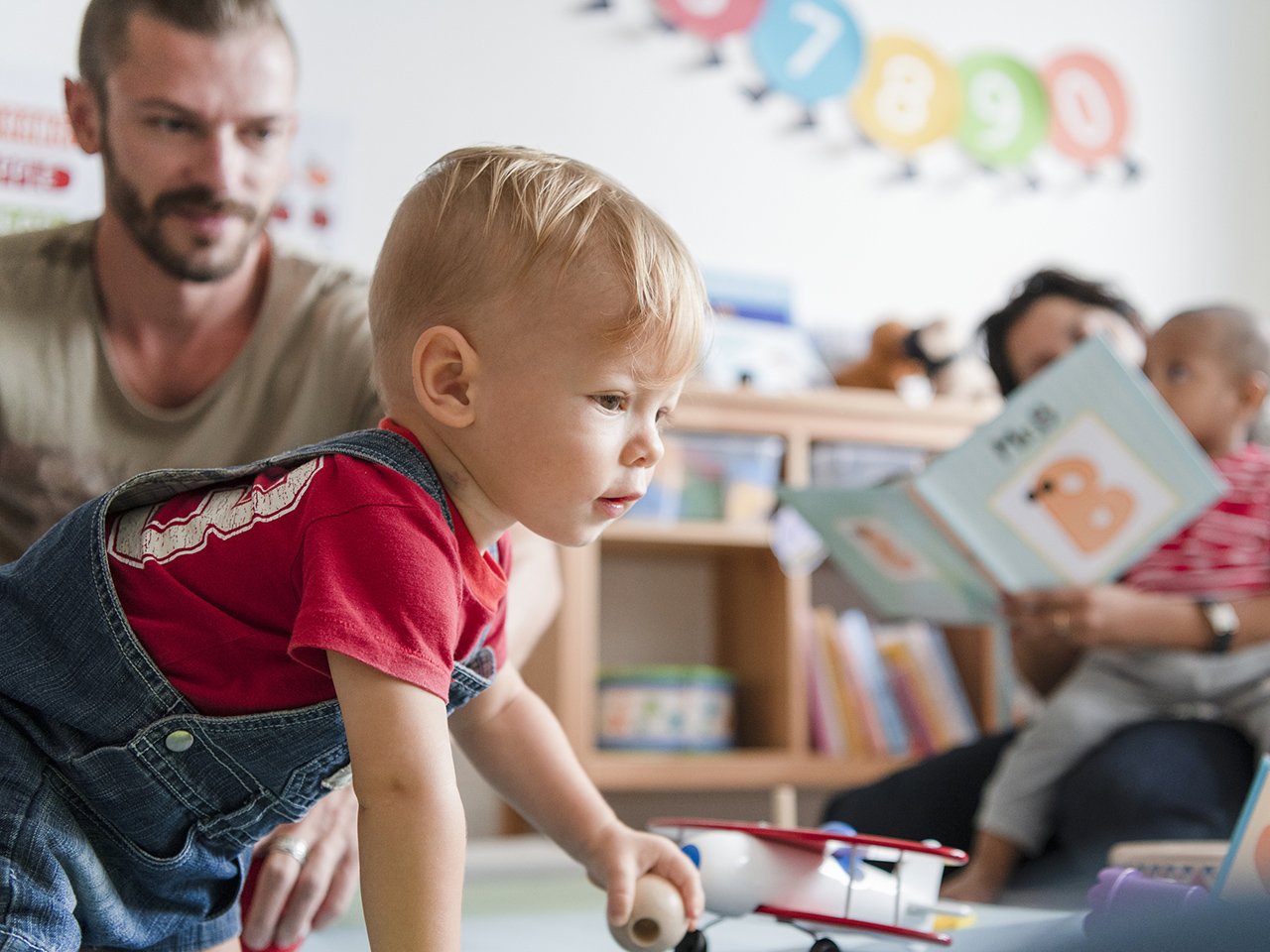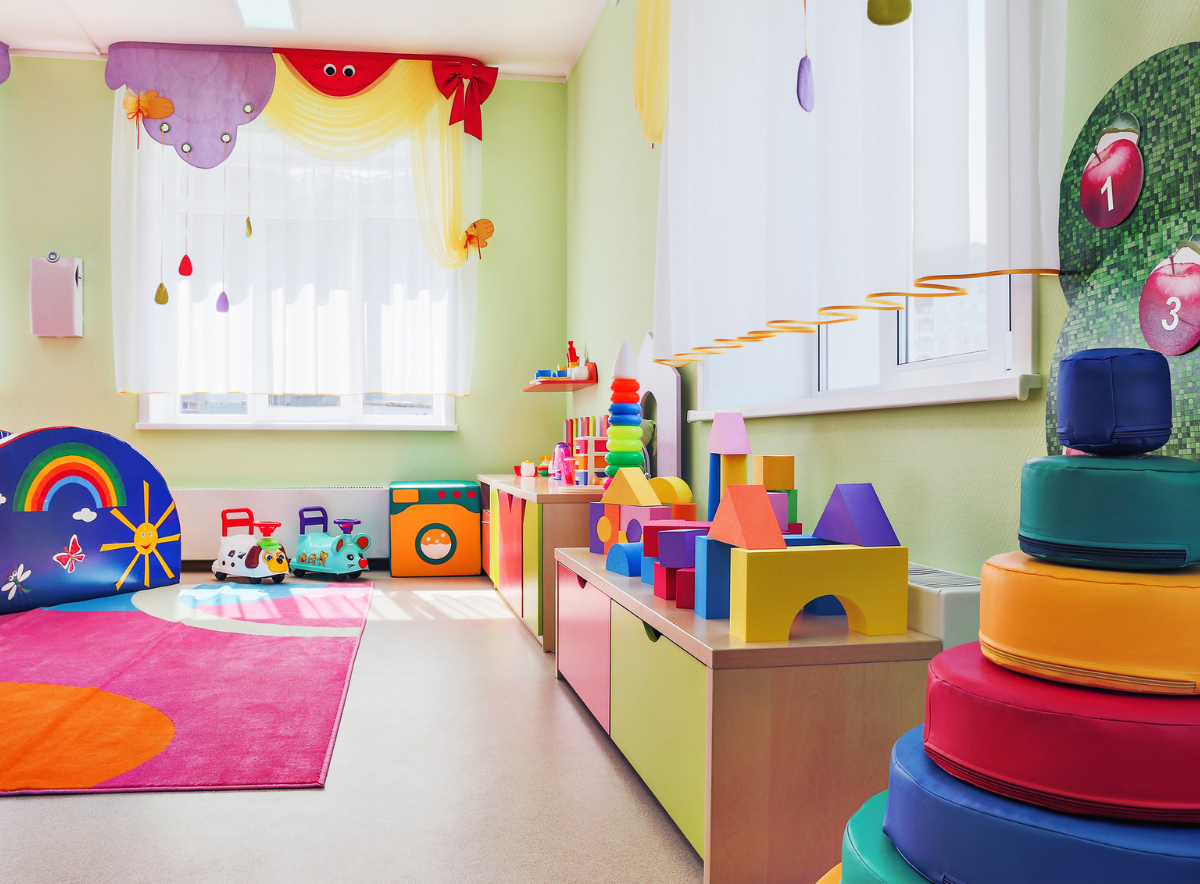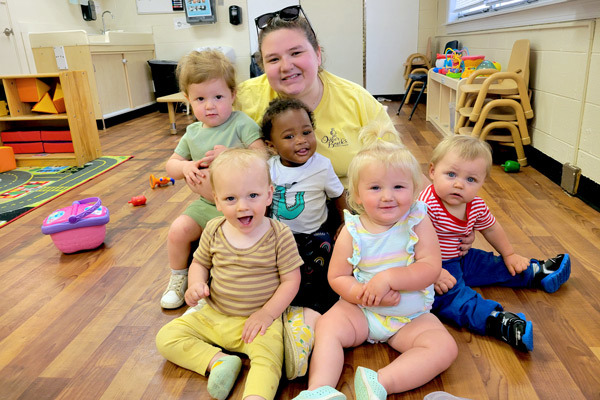Key Safety Measures Every Child Care Center Should Prioritize
Wiki Article
The Duty of DAYCARE in Fostering Social Skills and Very Early Learning
Daycare serves as a significant environment for kids, facilitating essential social interactions that promote very early knowing. In this structured setup, kids involve with peers and caretakers, developing necessary communication and collaboration abilities. As they navigate play and various activities, they discover to deal with disputes and build psychological intelligence. Comprehending the nuances of these communications reveals the profound influence daycare has on a child's development, forming their future partnerships and academic preparedness. What specific abilities do kids acquire in this setup?The Value of Social Communication in Childcare
While many moms and dads acknowledge the value of very early childhood years education, the role of social interaction in daycare is usually undervalued. Day care settings supply children with very useful chances to engage with peers, fostering essential social skills. Throughout these developmental years, kids find out to browse different social characteristics, such as sharing, cooperation, and dispute resolution. Communicating with diverse age groups and individualities boosts their ability to adapt to different environments and create empathy in the direction of others.
Structure Communication Abilities Through Play
Play functions as a powerful tool for kids to build vital communication abilities in daycare setups. Via different play tasks, youngsters talk, express their thoughts, and learn to listen to others. Parlor games, for example, encourage them to use language in various contexts, advertising vocabulary growth and understanding of social cues.
Narration during play enables children to communicate ideas and feelings, helping them create narrative abilities and confidence in their verbal expressions. In general, play not only works as a delightful leisure activity however additionally as an important platform for developing the communication skills necessary for effective social communications in later life.
Encouraging Participation and Teamwork
Teamwork and synergy are crucial skills that children can grow in childcare settings. Through different team activities, such as constructing projects or joint video games, children find out to share obligations and job toward common objectives. These interactions cultivate an understanding of the value of listening to others, discussing functions, and endangering when essential.In childcare setups, caretakers commonly produce chances for kids to take part in synergy by urging them to take part in team jobs. This not only helps youngsters establish social bonds yet additionally cultivates a sense of belonging and area.
As they browse these cooperative experiences, children gain beneficial understandings into the dynamics of collaborating with peers. They find out to appreciate diverse his response point of views and acknowledge that each participant contributes distinctly to the group effort. Eventually, these very early lessons in teamwork and teamwork lay the groundwork for healthier partnerships and effective cooperation in future social and academic setups.
Structured Learning Activities and Cognitive Development
Structured knowing activities play an essential function in fostering cognitive development in children (Childcare Near Me). These activities, that include puzzles, narration, and hands-on experiments, promote critical reasoning and analytical skills. In a day care setting, organized learning motivates kids to involve with their peers, boosting their capacity to process info and understand different ideas
Through guided play and interactive jobs, children create fundamental skills such as numeracy and literacy. Tasks centered around numbers can aid youngsters grasp mathematical ideas, while storytelling enhances language procurement and comprehension. Additionally, organized learning permits teachers to analyze developmental progression and dressmaker activities to individual learning requirements.

Incorporating a varied variety of structured tasks not only promotes cognitive development but likewise prepares youngsters for future scholastic success. By giving a well balanced environment that fosters exploration and query, childcare programs play a crucial duty fit the cognitive abilities of young students.
Fostering Emotional Knowledge and Self-confidence
Psychological knowledge and self-confidence are important elements of a youngster's development, matching the cognitive skills fostered via structured understanding activities. In day care settings, kids are provided with opportunities to express their feelings and engage in social communications, which are crucial for building psychological awareness. Via assisted play and group activities, children discover to recognize their sensations, acknowledge those of others, and develop empathy.Additionally, interaction with peers and caregivers assists to grow self-esteem and resilience. Positive reinforcement and support from grownups encourage youngsters to take threats and face challenges, fostering a feeling of accomplishment. As they browse social dynamics, kids develop self-confidence in their abilities to interact, team up, and deal with conflicts - Daycare North York. This nurturing atmosphere enables the progressive advancement of psychological knowledge, which is necessary for future interpersonal connections and overall wellness. Therefore, day care plays a significant function in fostering both psychological helpful hints intelligence and confidence in children
Often Asked Questions
Just How Can Parents Select the Right Daycare for Their Youngster?
Parents ought to think about elements such as place, staff qualifications, safety standards, curriculum, and evaluates from other moms and dads when picking the best day care for their kid, guaranteeing it aligns with their youngster's developing demands and family values.
What Age Is Ideal for Beginning Childcare?

Exactly How Does Childcare Influence Children's Actions at Home?
Childcare commonly positively affects youngsters's actions at home by boosting social skills, advertising freedom, and encouraging psychological law (Child Care Near Me). Because of this, kids might show improved communication and teamwork, causing even more unified family characteristicsExist Any Type Of Downsides to Daycare Presence?
Yes, there are downsides to daycare attendance, consisting of potential separation anxiety, direct exposure to health problems, and inconsistent caregiving. These aspects can influence a youngster's psychological well-being and modification in your home, influencing overall family members characteristics.Just How Can Parents Support Social Abilities Discovered at Day Care?
Parents can support social abilities learned at daycare by facilitating playdates, urging cooperative tasks, modeling favorable interactions, reviewing feelings, and reinforcing sharing and interaction in the house, therefore enhancing their youngster's social advancement and self-confidence.Childcare serves as a substantial environment for young kids, promoting vital social communications that advertise early discovering. Childcare settings provide children with important opportunities to involve with peers, fostering necessary social abilities. Play serves as a powerful medium for children to develop important communication abilities in day care settings. In childcare setups, kids are offered with possibilities to reveal their emotions and engage in social interactions, which are essential for get more developing emotional awareness. Childcare commonly positively influences kids's habits at home by improving social abilities, promoting independence, and encouraging emotional regulation.
Report this wiki page